Alcohol addiction and abuse are showing up in more and more killings through domestic violence, dangerous driving and disorderly behaviour and there appears to be no overarching plan involving the state and other stakeholders to address the scourge.
There is no known reliable data on the level of addiction here but each day there are reports of alcohol-fuelled acts of violence and carnage, some of which end in death (see box on right). There is also a widely–held view that alcohol abuse and addiction have led to rapidly increasing morbidity which is pressuring households and costing the state a large amount of money in treatment of liver disease and lifestyle afflictions fuelled by excessive drinking.
Early death of able-bodied men and women from alcohol-related sicknesses is an unknown cost to the economy as is the loss to productivity from absenteeism and drinking on the job.
The social impact of alcohol abuse on family units and mental health is seen as a major problem which passes below the radar and is not addressed because relatives despair at the lack of solutions. The abuse takes large chunks of income away from the home for alcohol consumption and creates long-lasting dysfunction in the family. Many households have been broken up as a result of a parent or other occupant of a family developing alcohol addiction.
With rum production being a major industry in the country and encompassing two of the largest private sector companies, there is easy access to alcohol of all types. While the evidence of alcoholism is widely apparent, there are only a few private-sector run facilities to battle addiction and little input from the state except for periodic donations to some of these facilities.
Instead, members of the public argue that the granting of licences for liquor shops continues unabated and villages have rumshops at many corners, providing ready availability of spirits to residents along with the inherent risk that those under age will also find ways to imbibe. There have been calls for tighter regulation of the licensing and the limiting of licences to only a certain number in small villages. In rural communities along the coast, rum shops and alcohol consumption have developed into an insidious social tradition passed on from one generation to the next with sobering repercussions.
Mechanisms to curb the consumption of alcohol remain under consideration in many countries and one that is being applied with greater frequency is raising tariffs on spirits significantly. A range of other options are under consideration globally. Ireland is considering a curfew on alcohol advertising and in Australia, The Foundation for Alcohol Research and Education has proposed that all drivers aged under 25 should be restricted to a zero blood alcohol limit given the number of drink driving cases involving this cohort.
Critics here say there is no such campaign or discussion being led by the state or the private sector on the scourge.
Alcohol and health
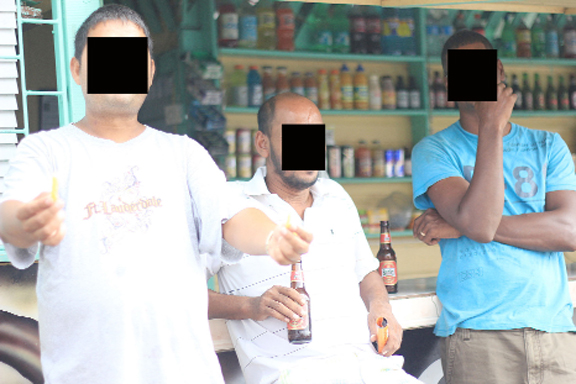
According to the World Health Organization’s Global Status Report on Alcohol and Health 2011, the harmful use of alcohol is a leading global health risk. “It is a causal factor in more than 60 major types of diseases and injuries and results in approximately 2.5 million deaths each year”, the report said. It added that the injurious use of alcohol is particularly “fatal for younger age groups and alcohol is the world’s leading risk factor for death among males aged 15–59.”
It added that approximately 4.5% of the global burden of disease and injury is blamable on alcohol.
“Alcohol consumption is estimated to cause from 20% to 50% of cirrhosis of the liver, epilepsy, poisonings, road traffic accidents, violence and several types of cancer”, the report stated.
The report found that the lower the economic development of a country or region, the higher the alcohol-linked mortality and burden of disease and injury per litre of pure alcohol consumed.
The report pointed out that as long ago as 1979, the World Health Assembly (WHA) called on WHO Member States to develop “intensive preventive programmes” and “appropriate legislation and other measures enabling effective action to be taken” to reduce the harmful use of alcohol.
Further, in 1983, the World Health Assembly recommended that Member States “formulate comprehensive national alcohol policies, with preventive measures as a priority”. In 2005, the World Health Assembly reiterated its appeal to Member States to “develop, implement and evaluate effective strategies and programmes for reducing the negative health and social consequences of harmful use of alcohol”.
Prices and taxes
The 2011 WHO report noted that one of the most effective strategies for cutting consumption of alcohol is through increasing alcohol prices, usually by raising alcohol taxes. It said that a recent review of 112 studies of the effects of the alcohol tax affirmed that when alcohol taxes rise, drinking goes down – including among problem drinkers and youth. It noted however that such steps can only work if the illegal alcohol market is under control.
The report said that only four countries have a dedicated line item in their national budgets for alcohol treatment: Croatia, Israel, the Republic of Moldova and Ukraine. However, it said
126 countries report a formal treatment policy, with 98 of them reporting a national policy. It is unclear where Guyana falls.
Back in 2008
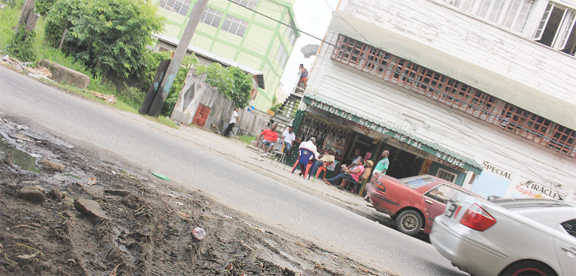
Alcohol abuse has been a topic of much discussion here, particularly during the tenure of former Health Minister Dr. Leslie Ramsammy. Back in 2008, he had told this newspaper that alcohol abuse costs the health sector millions of dollars a year in hospital bills alone. For years, he has warned that alcoholism is a serious health problem and while the ministry had taken small steps to address the issue, he admitted that there was still much more to be done. The then minister had noted that alcohol contributes to a host of negatives in the society, including violence, especially domestic violence and sexual abuse, as well as lifestyle challenges like ill health and hindering educational progress.
In 2009 he called for stiffer laws to fight alcohol abuse, higher taxation on alcohol products and fretted over lyrics that glorified alcohol.
The fight continues
Dr. Ramsammy was moved to a different ministry following general elections in November, 2011 and while many may say that not much has happened, his successor. Bheri Ramsaran says that the fight continues.
In an interview with Stabroek News last month, Dr. Ramsaran said that his ministry will be putting on the front burner the battle against the epidemic of NCDs (Non Communicable Diseases). He said that four categories have been identified, namely the abuse of alcohol, tobacco use/consumption, inactivity/a sedentary lifestyle and the use of sugary beverages and fatty foods.
He said that tackling alcohol abuse is part of a bigger plan that the ministry has. According to the ministry while there are plans afoot to revisit the legislative framework governing this issue, there needs to be a push for lifestyle changes “to get to the young people and that is why we have plans to expand school health clubs”. He said that in order to fight alcohol abuse there are “a whole range of things that we have to get into”.
He was when it comes to behavioural changes, the ministry is looking to recruit “champions” to promote healthier lifestyles especially among the younger people. He said that the ministry is hoping to link the fight against alcohol abuse with the fight against tobacco use because the two tend to go together.
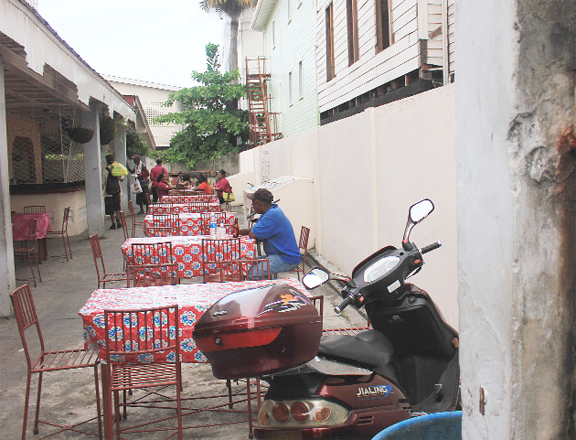
Asked how serious the alcohol problem was, Dr. Ramsaran said it plays a big role in domestic violence and motor vehicle accidents. He said that this issue should not be of concern only for the Ministry of Health but also be addressed by other ministries.
“This is one big complex issue… It has to be multi-sectorial. This is not the job of the Ministry of Health alone. It is the job of the Ministry of Education, we got to get Ministry of Culture, Youth and Sport involved by promoting a lot of healthy lifestyle practices”, he stressed.
The Minister said there is not enough information available to say if there is an increasing trend of young people consuming alcohol. He said that he does not want to commit to a number without the advice of his technical people particularly since studies are ongoing. “We can say that it is too excessive and we have to face it”, he noted.
He said that one of the keys to tackling this problem is to have change agents for example in the schools. He said that the ministry has a lot of “fliers and glossy booklets, a lot of glossy banners and a lot of glossy posters on alcohol and many other things but I am not satisfied that they are getting out there”. Dr. Ramsaran explained that some of the persons behind these projects are not going to the areas that they needed to.
Global concern
For alcohol abuse activist, Vidya Kissoon, this issue is not only a Guyana one but a global one.
“Globally there are concerns about alcohol consumption and availability especially to children”, he said, adding that in some parts of the world, the alcoholic beverages are cheaper than the non alcoholic ones. He recalled that while on a Caribbean Airlines flight sometime back the El Dorado Rum was the only thing advertised from Guyana.
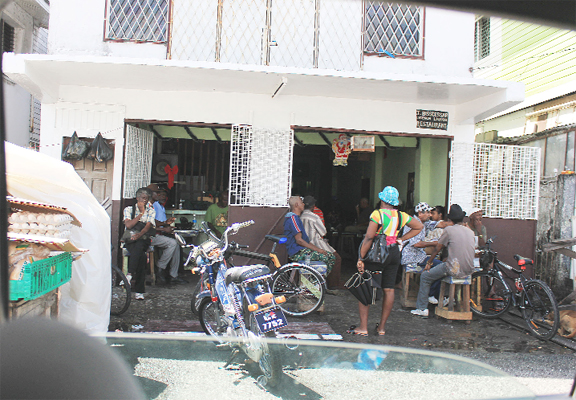
According to Kissoon, law enforcement here is weak in that any community wanting to protest the opening of a new liquor store has to go through a lengthy procedure. “I remember some persons saying that the business people in the small communities are powerful so they are scared to object”, he said, adding that objections to liquor licence applications have to be made in public as well which is all the more reason for people remaining silent.
“There is an irony that any alcoholic in Guyana seeking any AA (Alcoholics Anonymous) programme will have to pass hundreds of alcohol sellers before finding the programme”, he said, adding that there is a growing burden of chronic diseases, many of which are related to alcohol consumption.
Kissoon told Stabroek News that it is important to question and decide how the society wants to deal with the culture of alcohol abuse.
He said there are hundreds of families in Guyana who often say “when he nah drink, he does deh good good”. He said that he has seen stories where some women have started to drink to dull the pain of the alcohol-fuelled abuse.
Asked how alcohol abuse can be tackled, Kissoon told Stabroek News that first it must be acknowledged that there is a problem. “I have a feeling that many people do not see that alcohol consumption is a problem in Guyana”, he said while noting that he is in favour of abstinence and has advocated for this.
“There has to be a way of countering the effects of alcohol, of saying no. The issue of moderation is complex since many drunk people will say that they are okay”, he stressed.He said there also needs to be honest discussions about harmful substances and their effects for example the politics of marijuana banning versus alcohol selling. “Confronting our history, Regulating the industry… better governance, so people do not have to take liquor to deal with their pain”, he said are all ways to tackle this issue.
Be vocal
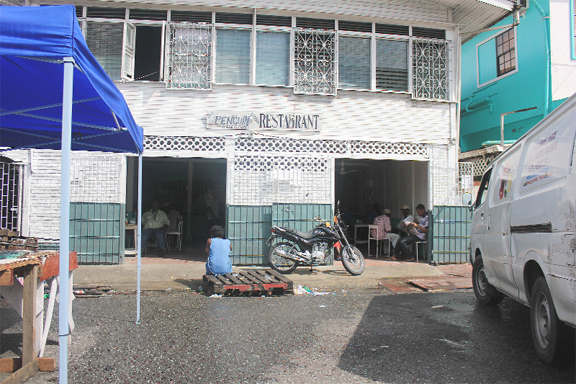
For Dr Vindhya Persaud being vocal against alcohol abuse is among the best chances we have to tackle this problem. During an interview with Stabroek News she said that “there are too few of us who actually get up and say something against alcohol abuse”. She said that too often we see alcohol being wantonly sold to minors and nothing is said and done about it.
Dr. Persaud said that as a member of the National Family Commission the subject of alcohol was discussed extensively and members have taken a pledge to monitor alcohol consumption. She said that there is little they can do as the commission has no authority to act but “what we will do is sensitize the public, the authorities and try to get some sort of enforcement going where persons who sell and those who purchase can be looked at”.
According to Dr. Persaud, who is also a Member of Parliament, there are too many lyrics circulating in the public domain that glorify alcohol. “People feel that it is ok to listen to this and it is ok to consume alcohol”, she said adding that in the Guyana Hindu Dharmic Sabha of which she is an executive member there is zero tolerance to alcohol at any of its events.
Alcoholic beverages are neither consumed nor sold, she said.
She, too, opined that the country does not see the excess consumption of alcohol as a problem. This, she said, is an issue by itself. She said that the conclusion has probably been reached because there is nothing on television about alcohol abuse as there is about HIV/AIDS and domestic violence.
“It is pretty much accepted in our society and unless we break that cycle of acceptance and unless we realize that it is a problem and it is linked to so many other cycles of violence, death, morbidity… only then can we fix the problem” she said.
She noted too that when she speaks to young people they often say that they consume but not much.
“I think that is where the danger lies. People seem to feel that they don’t drink much but not many people when they start to consume alcohol can stop and that is where the problem lies”.
Dr. Persaud said that there is a whole host of health issues that are related to alcohol consumption. Among them she said is liver failure and fertility issues.
She said that young women are drinking more than ever now and she blames this on acceptance and permissiveness in society. “Years ago it was considered a taboo for women to drink in public. Most people had a hidden problem, if they did have a problem.
It was done at home but now society is very permissive and young ladies can be seen guzzling beers or drinking hard liquor and that is something they need to take note of because they don’t realize that alcohol harms them even more than men”, she stressed.
Alcohol is money
It has been argued time and time again that alcohol is money and that its sales are boosting a multimillion dollar industry in Guyana.
Dr. Persaud in her interview with this newspaper had noted that while beverage companies have to make money they need to be more responsible in how they go about doing it.
“When you have beverage companies who sell alcohol they should have a warning and they should help in the fight while they are selling alcohol. I can’t say don’t sell it and ban it and all of that but there should be responsibility”, she said, adding that they can help to ensure that alcoholic beverages are not sold to minors or urging drivers not to consume excessively.
She said that beverage companies can also put up billboards and work along with government, NGOs and other stakeholders to help fight alcohol abuse.
Meanwhile, Kissoon touching on this aspect of the problem blames aggressive marketing. “The economics of alcohol is easy money… We hear of children being drunk at school now, so there is less and less control… alcohol is sold to children at many events and there are no restrictions imposed on those”, he said.
He expressed the view that the alcohol industry ought to be held responsible to an extent as well as the alcohol culture.
“I am sickened by the way the alcohol industry pervades our country and how helpless we are in its face”, he said adding that a particular ethnic group is targeted when duck curry competitions, chutney shows and sports events all sponsored by companies that produce alcoholic beverages, are held.
Asked why this issue wasn’t being given the same attention as HIV/AIDS and substance abuse, he responded “Alcohol is money, alcohol is a legal drug”.
Banks DIH is one of Guyana’s major producers of alcoholic beverages. In a brief comment the company’s public relations officer Troy Peters said that it is concerned about the issue and has in the past worked closely with local agencies to address concerns.
He said that Banks has a policy where the sale of such beverages is concerned and does not promote the sale of alcohol to minors.
According to Peters, his company often advises consumers to be responsible when drinking.”We are all concerned about the level of alcohol that is evident today. I am speaking on behalf of management and my own self. We are concerned about accidents and other incidents”, he said when asked how his company feels about the morbidity and deaths related to excessive drinking.
Stabroek News was unable to get a comment from Demerara Distillers Limited (DDL), another local producer of alcoholic beverages.
Availability
The Phoenix Recovery Project, located at Mon Repos, East Coast Demerara is one of the very few facilities in Guyana which are in operation to offer a lifeline to alcoholics and their families. This newspaper visited the facility and spoke with the coordinator Clarence Young.
Young told Stabroek News that alcohol is probably one of the most abused drugs in Guyana mainly because of its availability.
He noted that on one’s trip to the facility there are a large number of rum shops along the way. “It (alcohol) has been in existence for thousands of years and it has always had a negative impact “he said pointing out that one of the worst things today is the correlation between alcohol and other drugs with many of the ills in society including suicide, domestic violence, criminality and sexually transmitted infections.
According to Young, mental illness associated with alcoholism seems to be on the rise.
He opined that alcohol abuse is very prevalent, noting that it has a historical link with all the races in Guyana. He said that for example alcohol consumption is linked with sugar cane production, in which two races are involved.
He said at his facility he sees a larger number of persons coming in for treatment for substance abuse other than alcohol. However, he noted that over the past two years there has been a significant increase in persons coming for treatment for alcohol abuse.
Young stated that recovery is very challenging regardless of if it is drug abuse or alcohol. “Recovery is a combination of abstinence plus change and it may be a lot easier to abstain than it might be to change”, he said noting that in order to achieve this there must be a whole new approach to life.
According to Young, both men and women have come to the facility for treatment. He recalled that the first set of persons to come for treatment for alcoholism were women who were to some extent “long gone”.
He told Stabroek News that a lot of aged women have come in for treatment, the eldest being 72 years old. That person he said lived in the interior region and has since passed away.
What can be done?
According to Young, the country needs a comprehensive drug demand reduction programme. He said that the fight against drugs is done on two levels. The first being supply and reduction which is the work of the drug interdiction agencies. According to Young enough is not being done at this level, noting that this aspect of the fight has to be done on a similar level as in the case of HIV/AIDS because “it is as equally as deadly and it is impacting on the society just as much”.
He said that another way is to use those in recovery to “carry a powerful message”. He noted that today it is the norm to see sports being linked to alcohol. Sports, he said, is the main alternative to alcohol and other forms of drug use.
The stories of recovering alcohol addicts
Jane (not her real name) age 70 years says that she is the mother of one son and she has been a user since her early twenties.
When Stabroek News met Jane, a Georgetown-based resident she seemed happy but was a bit shy. She said that she has been in the programme for alcohol abusers for over a year and became enrolled on the advice of her son.
“Alcohol had changed my life tremendously. My relationship with my son, with my family, with everyone”, she said, her voice filled with sadness. She declared that since being enrolled in the programme she has been able to live better with people and is no longer loud or fretting about any and everything. “I can do without the alcohol”, she said in a very assertive tone.
She acknowledged that the journey through the programme has been a very challenging one. “There were some rough days but there were also some very rough days”, she said.
Jane advised all young people to stay away from alcohol which she described as no good. She is set to leave the programe soon.
Jason (not his real name) saw his life crumbling before his eyes as he continuously had a bottle in his hand even while on the job at a learning institution. It was those at the institution who saw him slowly fading away and decided to take matters into their own hands.
The 54-year-old man who was eager to share his story said that he is scheduled to leave the programme soon. He said that he has been an alcoholic since the age of 25. Asked how he started drinking, he recalled that he usually accompanied his friend to the rum shop. He said that when they drank five bottles of rum, he only drank one. He recalled one day one of his friends told him “tek a shot” and from that day onwards he became a heavy drinker.
Several times during the interviews tears welled up in his eyes as he recounted details of his life.
Jason told this newspaper that he regretted being an alcoholic because “my family and me don’t really get along”. Trying to hold back his tears he said that over time things got worst at home. He said that because of his life his children ages 27 and 24 have become ashamed of him. He said that they have even stopped speaking to him.
He said that he was due to return home for Christmas but that was decided against because of the large consumption of alcohol that usually takes place during the holidays.
According to Jason, being in a programme has not been hard. He expressed confidence that he will be able to turn around his life not only for himself but for his family.
Once he leaves his programme he said he plans to be an advocate and plans to target young people.
